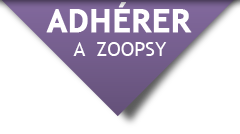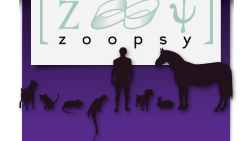| |
Darwinian selection, selective breeding and the welfare of animals - UFAW International Symposium 2009
University of Bristol, UK - 22-23 juin 2009
2009 marks the 200th anniversary of the birth of Charles Darwin and the 150th anniversary of the publication of his ‘On The Origin of Species ….’. In recognition of these anniversaries, the UK-based scientific and educational charity the Universities Federation for Animal Welfare (UFAW) is holding a two day international symposium at the University of Bristol that will consider the impacts of natural selection and of our selective breeding of animals on their welfare.
The programme of contributors has just been announced and the list of speakers is as follows:
Day One: 22nd June (9:00-17:00)
Session 1
- JK Kirkwood (UFAW): Introduction to the symposium·
- J Quinn (University of Oxford): The adaptive significance of personality traits in nature·
- P Jensen (University of Linköping): Domestication, selection, behaviour and welfare of animals – genetic mechanisms for rapid response
Session 2
- P McGreevy (University of Sydney): Challenges and paradoxes in the companion animal niche·
- RB D’Eath, AB Lawrence, J Conington, IAS Olsson and P Sandøe (Scottish Agricultural College, University of Porto and University of Copenhagen): Breeding for behavioural change in farm animals: practical and ethical considerations·
- M Špinka (Institute of Animal Science, Prague): Domestication effects on animal emotional signalisation: A conceptual model
Session 3
- J Yeates, R. ter Meulen and DCJ Main (University of Bristol): Breeding for pleasure: The value of pleasure and pain in evolution and welfare ethics·
- PA Oltenacu and D M Broom (Oklahoma State University and University of Cambridge): The impact of genetic selection for increased milk yield on the welfare of dairy cows·
- MD Cooper and JHM Wrathall (RSPCA): Assurance schemes as a tool to tackle genetic welfare problems in broilers
Session 4
- J Hurst (University of Liverpool): On the origin of laboratory mice and consequences for welfare·
- P Honess, MA Griffiths and S Narainapoullé (University of Oxford and Bioculture (Mauritius) Ltd): Selective breeding of primates: Consequences and challenges·
- T Woodfine (Durrell Institute): Wild animal conservation genetics· SP Redrobe and JB Carroll (Bristol Zoological Gardens): Gorilla reproduction in captivity – to assist or not
Day Two: 23rd June (9:30-17:20)
Session 5
- LM Collins, L Asher, G Diesel and JF Summers (Royal Veterinary College, UK): Conforming to standards: A review of inherited defects as a consequence of physical conformation in pedigree dogs·
- TB Rodenburg, P Bijma, ED Ellen, R Bergsma, S de Vries, JE Bolhuis, B Kemp and JAM van Arendonk (University of Wageningen and Institute for Pig Genetics, The Netherlands): Breeding amiable animals? Improving farm animal welfare by including social effects into the genetic model·
- PC Trimmer, JAR Marshall, JM McNamara and AI Houston (Scottish Agricultural College): A theoretical analysis of the evolution of fear
Session 6
- J Conington (Scottish Agricultural College): Natural selection for easier sheep management·
- TW Lewis, JA Woolliams and SC Blott (Animal Health Trust and The Roslin Institute, UK): Optimisation of breeding strategies to reduce the prevalence of inherited disease in pedigree dogs·
- JM Macfarlane, SM Matheson and CM Dwyer (Scottish Agricultural College): Genetic parameters for lamb birth difficulty, vigour and sucking ability in Suffolk sheep·
- JWS Bradshaw and ES Paul (University of Bristol): Is (was) empathy for animals an adaptation?
Session 7
- T Mark & P Sandøe (University of Copenhagen): New genomic developments in dairy cattle breeding – the risks and opportunities for health and welfare·
- R Casey and JWS Bradshaw (University of Bristol): Individual differences in behavioural response style in domestic cats·
- SP Turner, R Roehe, RB D’Eath, SH Ison, M Farish, MC Jack and AB Lawrence (Scottish Agricultural College): Selection against pig aggressiveness at regrouping; practical application and implications for long-term behavioural patterns
Session 8
- G Mason (University of Guelph): The ‘comparative approach’: Using inter-species variation to test evolutionary and ecological hypotheses about animal welfare·
- FD McMillan (Best Friends Animal Society, USA): Selective breeding in fighting dogs: What have we created?·
- NJ Rooney (University of Bristol): Welfare concerns associated with pedigree dog breeding in the UK
This symposium is the latest in UFAW’s continuing and successful programme of themed international meetings that bring together leading scientists, veterinarians, policy makers and all those with an interest in animals and their welfare.
Further details about the meeting, including a registration form and a full list of contributors can be obtained from UFAW and the UFAW website. A drinks reception has been arranged at Bristol’s City Museum and Art Gallery on the evening of the 22nd.
To ensure attendance, early registration is encouraged as UFAW symposia are usually over-subscribed. In addition, those who register before the 28th February will qualify for a reduced registration rate. There is also a limited number of subsidized places for students and veterinary nurses that will be allocated on a first-come-first-served basis.
It is intended that that the proceedings of this symposium will be published as a special issue of ‘Animal Welfare’
|
|



